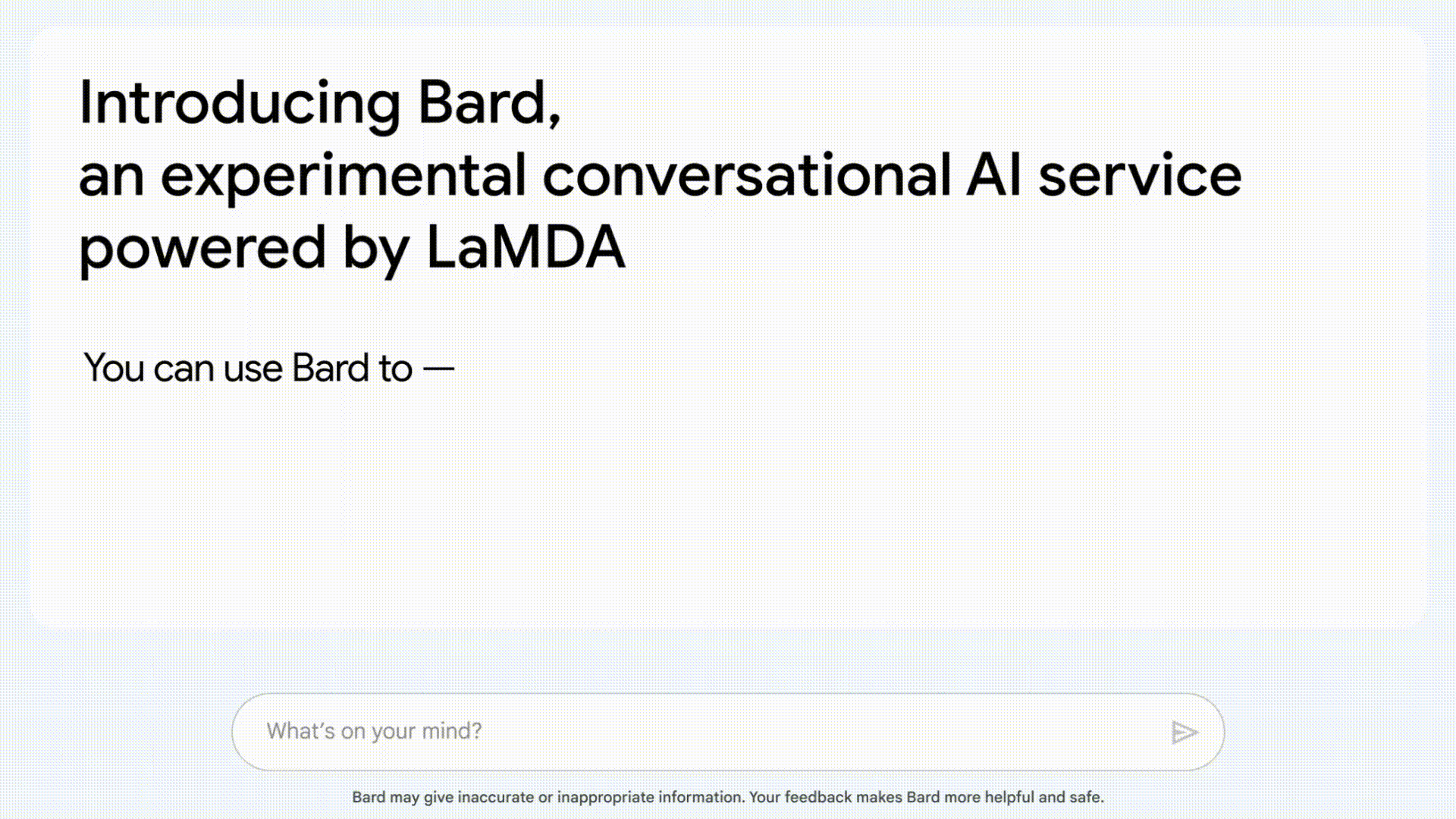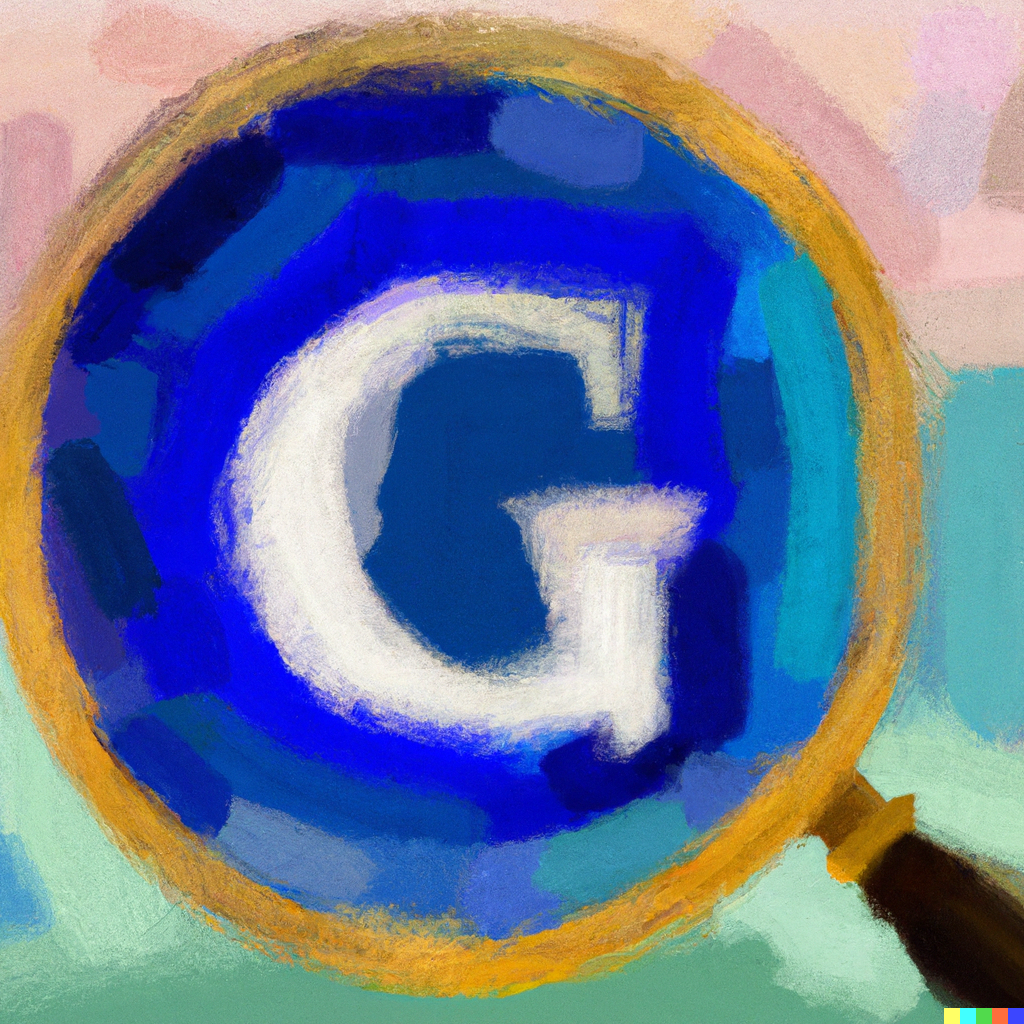Big news out of Mountain View today: Google has announced an AI powered chatbot they’re calling Bard.

I’m guessing Bard is a Shakespeare reference, or maybe it refers to Geoffrey Chaucer. I don’t love the name, but it has more personality than “ChatGPT”.
Google says their chatbot is being tested today with “trusted testers” with plans to open it up for broader access in “coming weeks.”
Bard sounds like it’ll be similar to OpenAI’s chatbot: it can answer questions and hold conversations. Google says they’re using a lightweight version of their LaMDA chatbot model, which was infamously declared sentient by Blake Lemoine back in 2022. Clearly it’s not sentient, or else Google wouldn’t be releasing it to the public to access to free. Right?
Because Google absolutely dominates the search engine market, it might feel like they’ve been a bit slow to implement AI technology — despite the fact that Google literally invented transformers (the T in ChatGPT stands for “transformer”).
This is still one of the biggest technology companies in the world, and that assumption isn’t entirely true: Google has been slowly but steadily implementing AI features for a while now. They are no longer the nimble startup; they’re the careful conglomerate. Bard will be a good product — it has to be.
The other news, that Google is adding deeper AI capabilities to search results, adds an entirely new dimension to a product that has been starting to show its age. This might not be the first time they’ve introduced AI powered features, but it will likely be the most significant.
Google has developed so much faith in its users that we expect it to be able to help us find answers to increasingly complicated questions — a perfect use-case for generative AI.

The press release that Google published today announcing this included the video and screenshot embedded above, along with some narrative-setting from Sundar Pichai — notably including a link to this paper demonstrating that ML training compute has started to “double approximately every 6 months,” vastly outpacing Moore’s Law (which roughly doubles every 20 months). As machine learning gets better, machine learning gets better.
